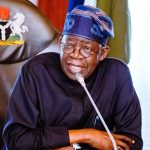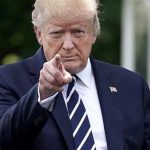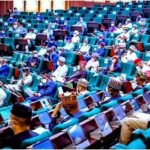President Bola Ahmed Tinubu is observing the unfolding events across Nigeria, sparked by the #EndBadGovernance protest on August 1, 2024. The protest was organized to highlight the high cost of living that Nigerians are facing and the resulting consequences, including food shortages that are becoming unaffordable for the middle class and ordinary citizens.
Before Tinubu’s election, his economic team seemed to downplay the urgency of addressing an overheated economy on the brink of collapse, burdened with massive debt, high unemployment, and shuttered manufacturing companies. Instead, they focused on issues like the contentious petroleum subsidy and the exchange rate and tax policies left by the previous administration.
Swiftly following their advice, President Tinubu announced the removal of the subsidy during his inauguration speech. This decision, along with subsequent changes to the exchange rate and tax regimes, quickly became a burden for his administration. Within a year, the cost of living skyrocketed, and the economy faced stagflation. The resulting unbearable hardships triggered the #EndBadGovernance protest, which led to significant disruption of economic activity, social unrest, destruction of public and private property, and heavy casualties.
In the wake of the protests, the President may need to adopt a new strategy to address the economic hardship and social dislocation caused by the initial policy decisions. It is worth noting the administration’s support for local refineries, including the Dangote Refinery, by selling Nigeria’s crude oil to them in Naira instead of U.S. Dollars. This move aims to lower production costs and sell refined products in Naira, thus saving foreign exchange, boosting Nigeria’s foreign reserves, and stabilizing the Naira. Consequently, the subsidy issue might be resolved once and for all.
On the issue of exchange rate management, reduced demand for Dollars and foreign exchange earnings from local refineries like Dangote will strengthen Nigeria’s foreign reserves and the Naira. A stronger local currency in international payments would be advantageous for the country.
Regarding taxation, the President should understand that higher taxes do not necessarily foster economic growth or attract foreign direct investment into the real sector. Higher taxes could discourage investors from pursuing opportunities with high potential returns and steady growth.
The administration’s approach to the Central Bank of Nigeria’s (CBN) monetary policy is another concern. With a prime lending rate hovering around 30%, it is unrealistic to expect manufacturing companies to produce and compete with imported goods at competitive prices. High-interest rates are a serious disincentive to borrow, especially in an environment with low purchasing power and recent minimum wage increases. In a depressed economy like Nigeria’s, the CBN needs to adopt a more liberal monetary policy to attract investors to the manufacturing and solid minerals sectors, thereby rejuvenating the economy and setting it on a path of sustained growth. The financial market requires a revival and should be safeguarded from potential self-destruction. The CBN should conduct a comprehensive stress test of banks and reintroduce refinancing and restructuring policies to support struggling banks rather than allowing them to fail.
President Tinubu should prioritize the revival of moribund or closed manufacturing companies, in collaboration with the CBN, through refinancing and restructuring facilities. This approach could breathe new life into many manufacturing companies and provide relief to banks burdened with non-performing loans. It could also help produce goods locally, such as textiles and ceramic sanitary wares, reducing reliance on imports. Trade liberalization policies that hinder Nigeria’s industrialization should be replaced with ones that revamp industries, create jobs, and generate wealth.
The #EndBadGovernance protest should serve as a learning opportunity for President Tinubu, encouraging him to make his tenure a model of success and have a chance for re election in 2027 by giving Nigeria a better deal before then.
Mahmud Shuaibu Ringim
HALIM Consulting Ltd
mahmudshuaibu44@gmail.com





